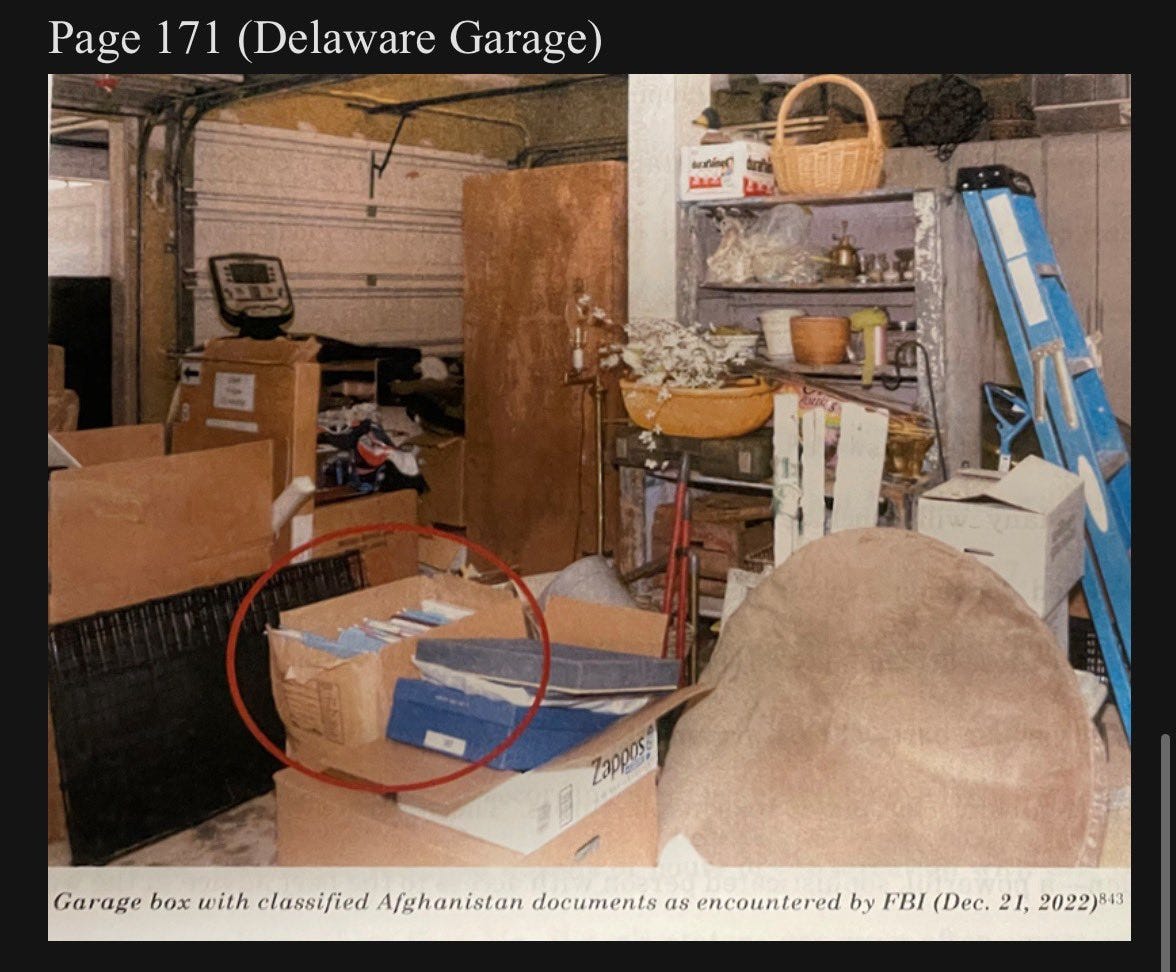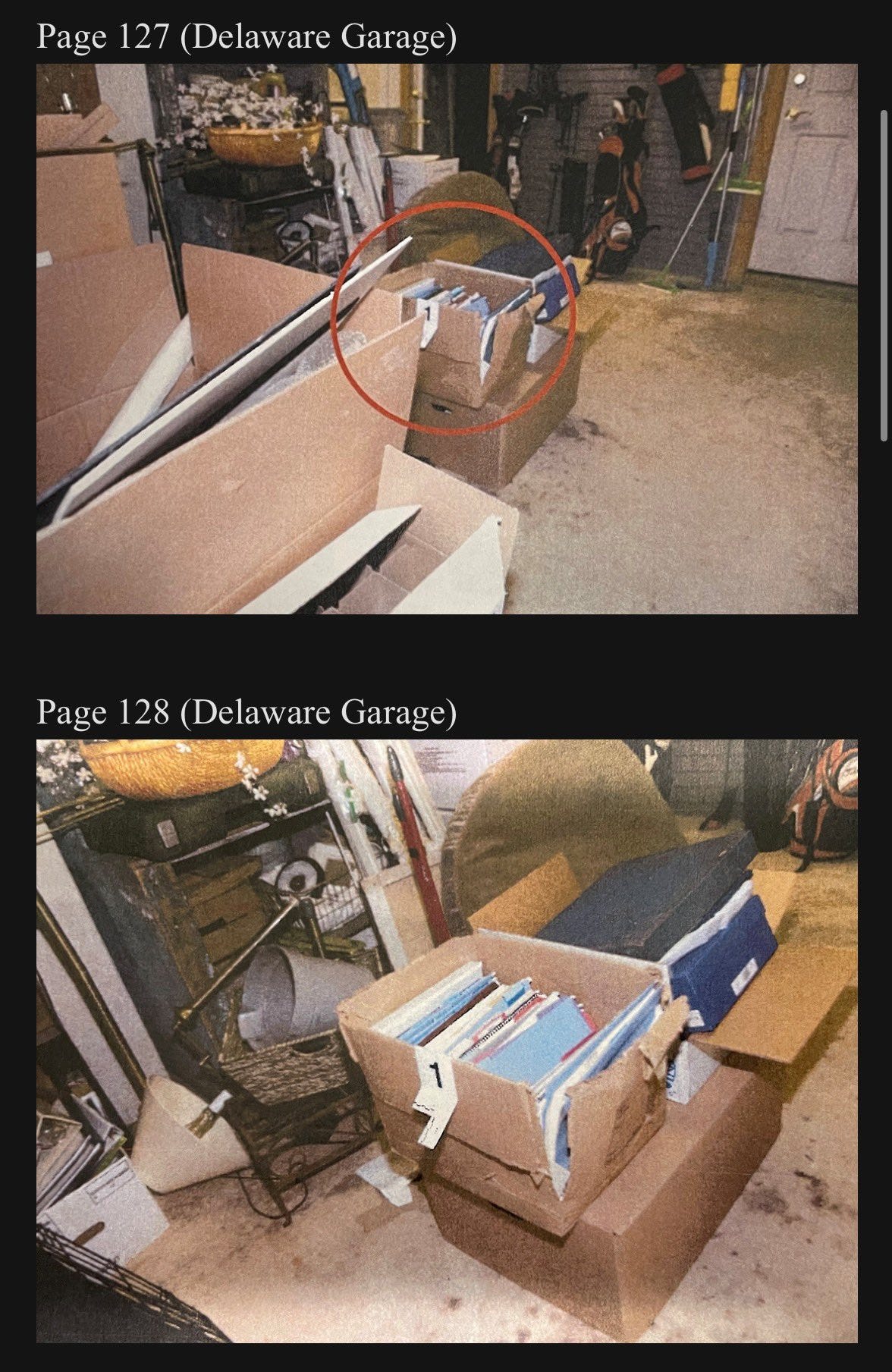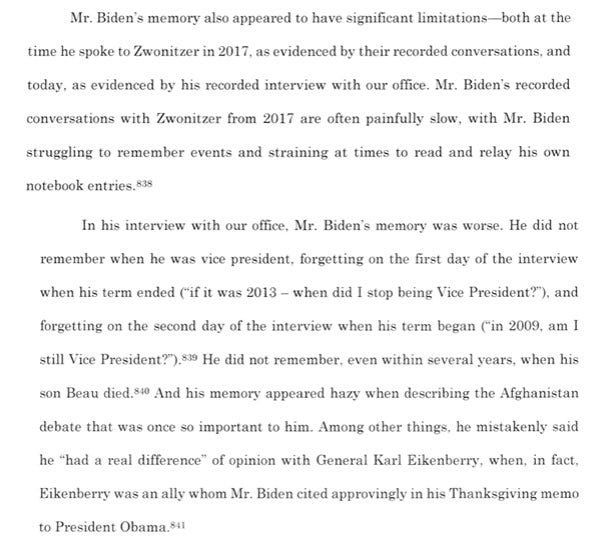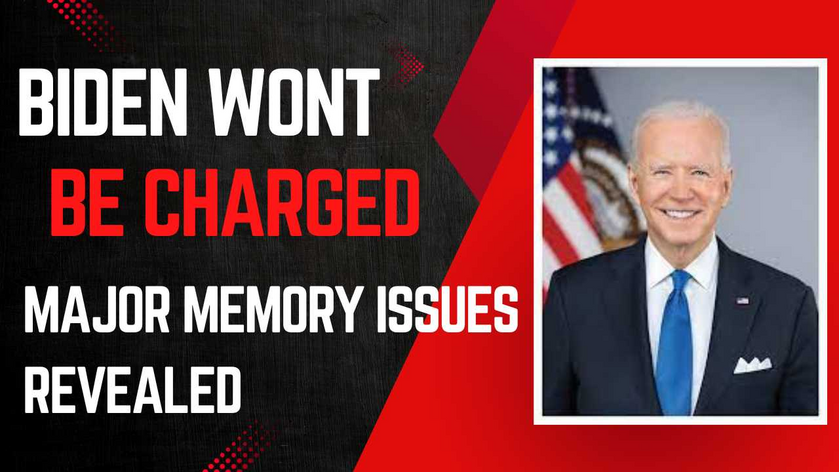In a significant development, Special Counsel Robert Hur has concluded his thorough investigation into President Joe Biden's handling of classified documents, finding no grounds for criminal charges.
The probe, which delved into allegations of improper retention of sensitive records, including military and foreign policy documents related to Afghanistan, has been closely watched by political observers and the public alike.
I am making this free to everyone. Please support my independent journalism if you don’t already. It’s $5 a month, you can quit at any time. Help me defeat the narratives.

Hur's investigation revealed that while classified materials were indeed found in various locations associated with Biden, including his Delaware residence, there was insufficient evidence to establish criminal intent beyond a reasonable doubt. The Special Counsel's report highlighted the complexity of the case, noting the sensitive nature of the documents involved and their potential implications for national security.

Despite uncovering evidence that Biden retained and disclosed classified materials after his tenure as Vice President, Hur emphasized that the legal threshold for a conviction—willfulness—was not met. The report also considered mitigating factors, such as Biden's age and memory, suggesting that a jury might find it challenging to convict a figure perceived as a "sympathetic, well-meaning, elderly man."
It was also revealed as part of this report that Biden didn’t even remember his time as Vice President.

The White House cooperated fully with the investigation, which spanned over four decades of Biden's public service, including his time as a Senator in the 1970s. The administration did not request any redactions to the report, which was submitted to Congress, underscoring its commitment to transparency.
This conclusion comes amid heightened scrutiny of the handling of classified information by high-profile figures, including former President Trump, who faces his own legal challenges related to classified documents. The juxtaposition of these cases has sparked debate over potential double standards in the justice system's treatment of political figures.
As the 2024 election looms, the findings from Hur's report are likely to influence political narratives, with Biden's camp expressing relief and vindication. Meanwhile, critics and opponents continue to raise questions about the broader implications of the handling of classified information by current and former officials.
The resolution of this case marks a pivotal moment in the ongoing dialogue about accountability, transparency, and the rule of law at the highest levels of government.




















